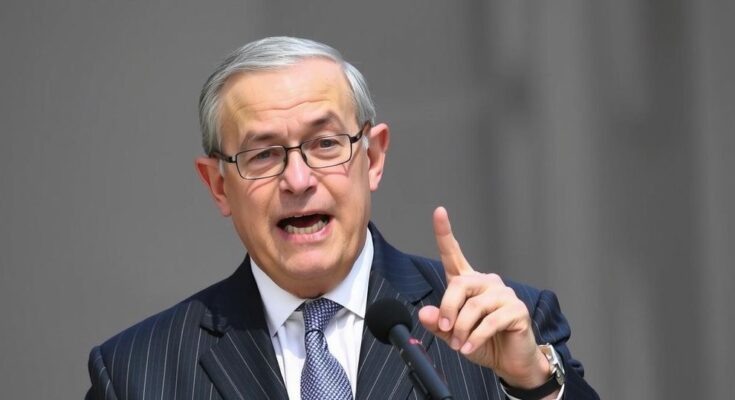Ahmed al-Sharaa, Syria’s de facto leader, announced that the process leading to elections could take four years, requiring a new constitution that may take up to three years to draft. He emphasized the significance of relationships with Iran and Russia and called for the lifting of US sanctions after the ousting of Bashar al-Assad by HTS. An interim government is set to lead the country until March 1.
Syria’s de facto leader, Ahmed al-Sharaa, has announced that the country’s political transition towards democracy could span up to four years. He cited the necessity of drafting a new constitution, which he estimates will require two to three years before elections can be organized. In an interview aired on Sunday by Saudi Arabia’s state-owned Al Arabiya, Sharaa highlighted the importance of maintaining diplomatic relations with Iran and Russia while advocating for the United States to reconsider its sanctions against Syria following the change in leadership. Following the recent ousting of former ruler Bashar al-Assad by Sharaa’s Islamist rebel group, Hayat Tahrir al-Sham (HTS), Sharaa emphasized the planned establishment of an interim government to guide the nation until March 1.
The context of this discussion lies in the prolonged civil conflict in Syria, which has resulted in a complex political landscape. The United Nations has previously advocated for a political roadmap, outlined in Resolution 2254, which includes drafting a new constitution and scheduling elections under UN supervision. The aftermath of the Assad regime’s collapse and the emergence of HTS as a new power player has drawn international attention to the potential for democratic transition in Syria.
In summary, Ahmed al-Sharaa’s statement regarding the timeline for elections in Syria suggests a deliberate approach towards establishing a democratic framework. The emphasis on rewriting the constitution, alongside the desire to forge stronger relations with key allies, underscores the complexity of the political transition. The outcome of these developments will significantly impact Syria’s future governance and its international relationships.
Original Source: www.abc.net.au



